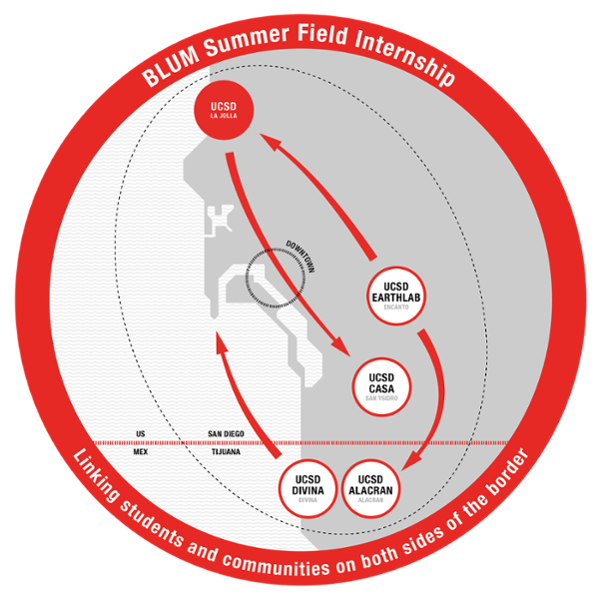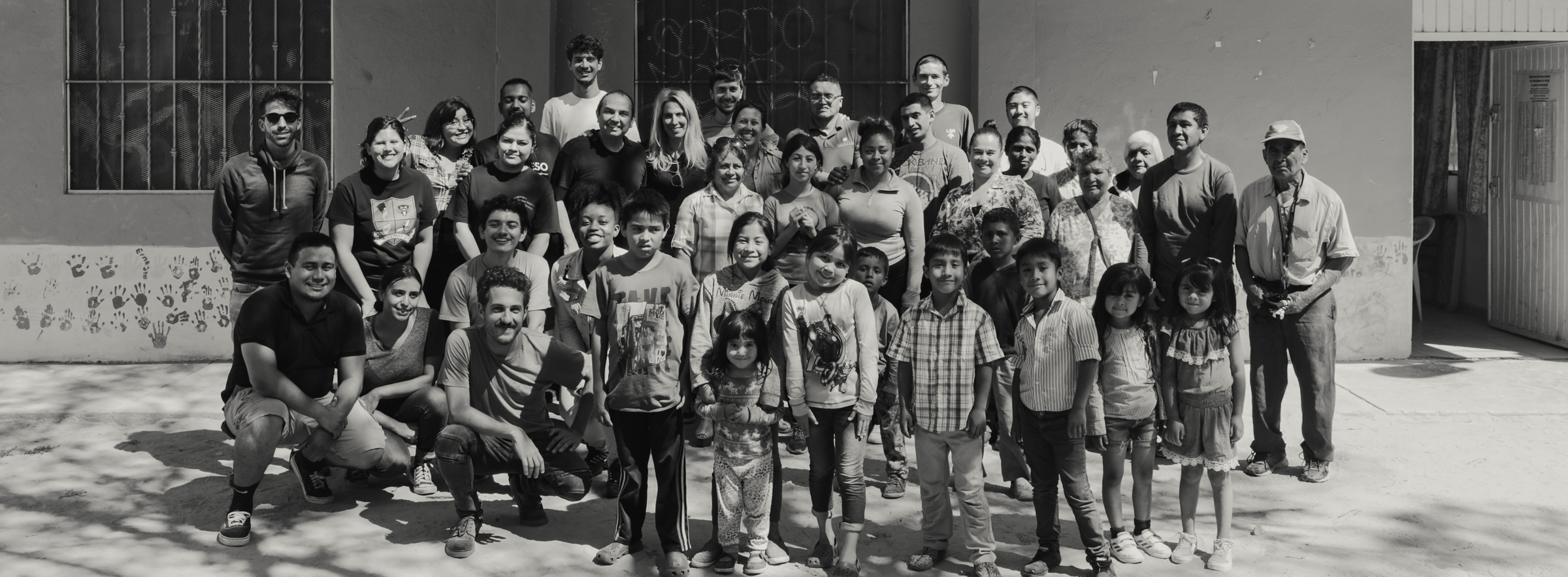Training undergrad students to increase community agency and enable children to become the stewards of their own environment
The Blum Summer Field Internship (BSFI) was established in 2014, with generous funding from University of California Regent Richard C. Blum and the UC Office of the President, to enable dozens of UC San Diego undergraduates to participate each summer in immersive, team-based field research in the UCSD Community Station sites, located in four disadvantaged communities across the San Diego–Tijuana border region.
The BSFI is a paid field experience, designed to enrich undergraduate classroom learning by immersing students in sites of marginalization across San Diego County. Students are trained to analyze societal challenges through multiple lenses, to communicate across disciplinary languages and knowledges, and to engage respectfully in collaborative research and problem-solving with each other, and with our community partners. Students participate in mentorship programming with local youth, and work in supervised, interdisciplinary research teams, investigating the many issues and challenges faced by disadvantaged communities of color across our region, including: health, mental health and well-being; migration and inclusion; affordable and emergency housing; equitable urban development; public space and programming; environmental justice; educational access; climate action; engineering and technical problem-solving; human rights and social justice; the role of arts and culture in community development; and youth leadership.

Strategies of Engagement
Undergraduate research in the BSFI is shaped in collaboration with our community partners, based on specific needs and projects underway. Several research tracks have emerged as central:
Urban pedagogy
Researching new strategies of community engagement and visual literacy to make complex urban and environmental challenges more accessible to the community.
Participatory climate action
Using new technologies to assess soil, air and water quality, to democratize science and design more inclusive and just climate mitigation and adaptation policies and strategies.
Citizen-humanities
Employing ethnographic research to study every-day practices and values embedded in the community to develop powerful arts and cultural interventions that elevate community knowledge and capacity for collective action.
Participatory social science
Designing surveys and focus groups to research social attitudes and behavioral norms in the community to rethink conventional strategies of civic engagement.
Participatory design
Collaborating with communities in the design and production of new civic infrastructure, emphasizing the positive relationship between public space, education and public health.
Distributed telecommunications and informal education
To research and design effective media platforms that enable the campus to communicate knowledge in inaccessible and vulnerable geographic zones.
Contact Us
To inquire about our Blum Summer Field Internship, contact Amy Knight
